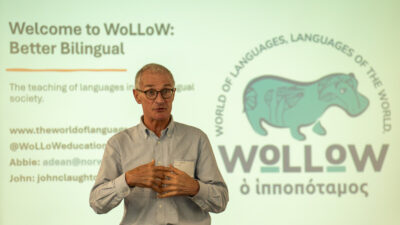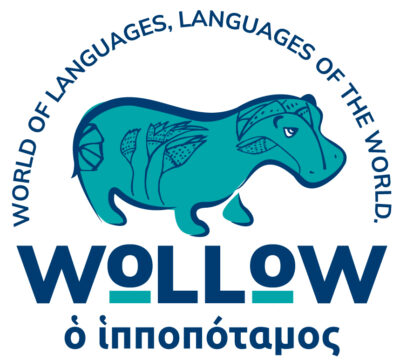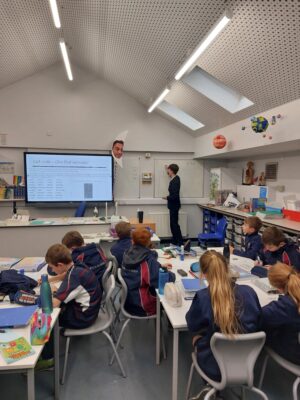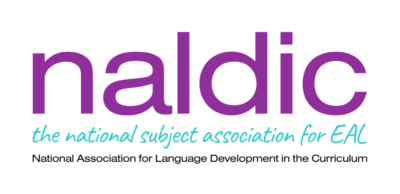 John Claughton, co-founder of WoLLoW, shares with the NALDIC community a programme for introducing all languages in primary schools and rethinking language learning
John Claughton, co-founder of WoLLoW, shares with the NALDIC community a programme for introducing all languages in primary schools and rethinking language learning
I’m no expert in English as an Additional Language, but I’ve got some questions—and I suspect I’m not alone. These questions point to a system that could use some serious rethinking. Here are just a few to consider:
- Why can you read the website of any Birmingham prep school in 200 languages, but the only language spoken in those schools is English?
- Why are children being taught French or Spanish or perhaps Latin for four years in primary school, only to start all over again- with the same language or a different one- in secondary school?
- Why do primary school pupils sometimes sit next to each other and not even know they share the same language(s)?
- Why isn’t fluency in a language other than English seen as an asset? Indeed, why is being fluent in another language viewed as a lack of belonging, or an absence of so-called ‘British values’?
- And why are some languages deemed more valuable than others?
I believe that questions like these point to inconsistencies and inefficiencies in how we approach language and languages in schools. For instance:
- we teach the languages we teach either because it’s what we’ve always done, or because they are the only languages we know: a choice based on tradition or convenience, not strategy
- we often neglect pupils’ existing linguistic skills to make room for languages they may never master
- we separate literacy from language learning, and often EAL pupils from their peers
- there’s little consistency or continuity in content or methods
Building on some of these reflections, we started a project not to teach a language, but to learn about languages, how they work, how they are linked, and how they relate to everything else. WoLLoW, World of Languages, Languages of the World is a programme designed to introduce language as a game, a puzzle, a code, and an insight into the children’s own lives and identities. Most importantly, WoLLoW invites pupils to teach us their languages rather than forcing them to learn ours.

Here’s a glimpse into a WoLLoW lesson:
Step 1
‘Why is today Wednesday, and tomorrow Thursday?’, we ask – and that may open a discussion on the sun and the moon and Saturn or Viking gods. There’s a start.
Step 2
We show the pupils the days of the week in other languages like French, Spanish and German, and ask, ‘What’s similar and what’s different, and why?’ Now we’ve got Roman gods and planets and Romance languages, Germanic languages, which are more like English, and we might end up talking about the Roman Empire or the solar system, or what Mittwoch means.
Step 3
Here’s where the magic happens. Teachers stop talking, and pupils take the lead. They share the days of the week in their languages and cultures. They may ask their families for insights and bring those stories to class. Do all cultures even have a week? Let’s find out together.

What larks! It’s a shared exploration and we are all equal. Everyone gets a voice and everyone learns something about themselves and their classmates. WoLLoW resources are full of such wonders: there’s a Greek lesson so you can tell your tyrannosaurus from your pterodactyl – and your hippopotamus – and understand why physics isn’t spelt ‘fisiks’; there are lessons on Celtic, on Braille and sign-language, on the mongrel that is English and on the multilingualism that is everywhere we go and look. And the good news for teachers is that they are allowed not to know it all. Teachers don’t need to know everything, they can learn alongside their pupils!

Why does it matter? Well, WoLLoW has been used in hundreds of schools in England and it simply works. It prepares pupils for learning other languages in secondary school, enhances their language and language learning skills, and supports EAL students by fostering pride in their identities. The success of this programme reflects the need for some rethinking in education, because language matters and every teacher can be, and is, a language teacher.

Find out more about multilingual teaching and learning
- Join one of our Regional or Special Interest Groups
- Attend one of our free NALDIC events this year
- Do you have a story to share? Write a post for the NALDIC blog


